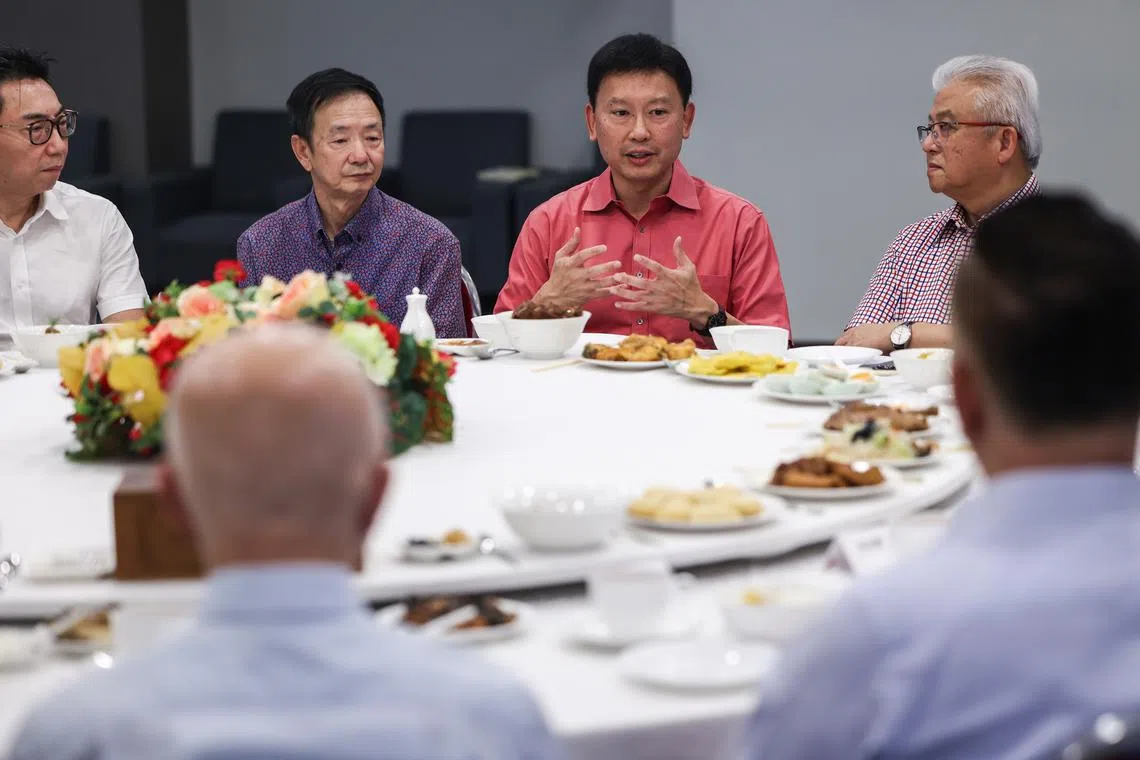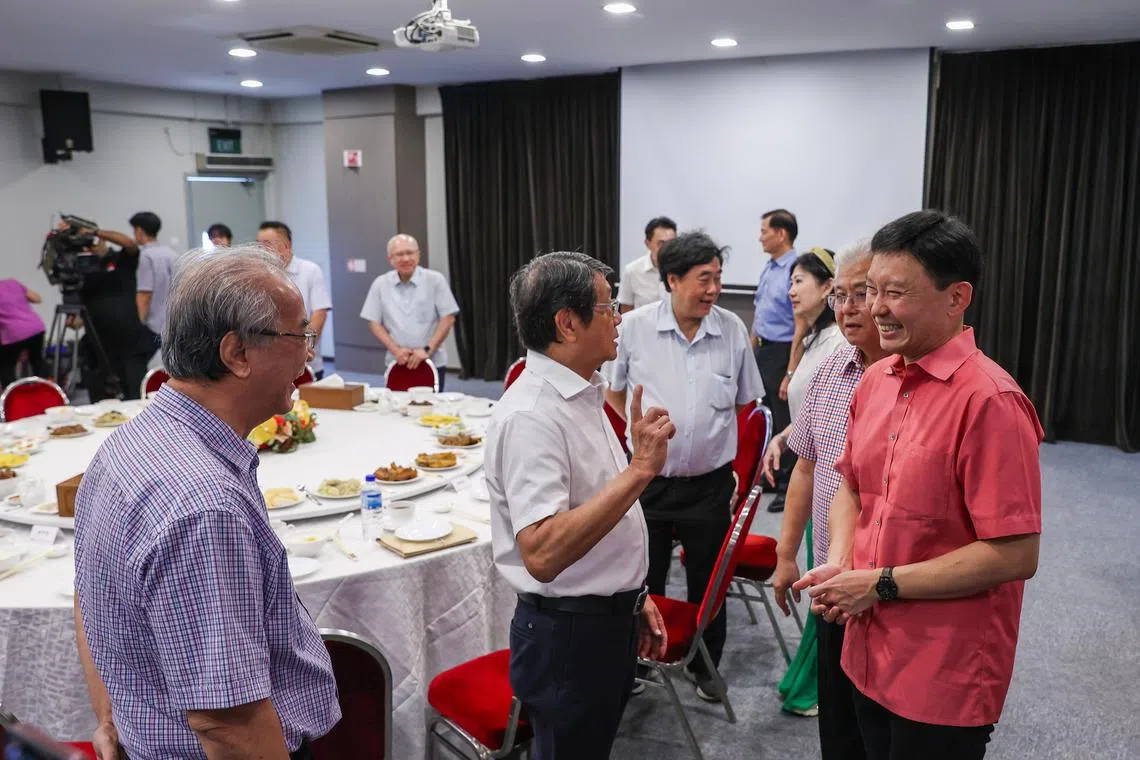New leadership development programme to train young Chinese community leaders
Sign up now: Get ST's newsletters delivered to your inbox

Minister for National Development Chee Hong Tat speaks to the council members during a luncheon held at Singapore Federation of Chinese Clan Associations on June 13.
PHOTO: LIANHE ZAOBAO
Follow topic:
SINGAPORE - A new programme is being drawn up to train the next generation of leaders for Chinese community groups, including clan associations.
As a first step, leaders from the Singapore Federation of Chinese Clan Associations (SFCCA) will meet their counterparts from the Singapore Chinese Chamber of Commerce and Industry to set up a task force on the issue.
“We want to see how we can better attract more young people to join the Chinese community organisations and to strengthen our leadership pipeline, to be future-ready,” said Mr Chee Hong Tat, the newly appointed chairman of the Chinese Community Liaison Group (CCLG).
Mr Chee, who is Minister for National Development, said on June 13 that leadership development and succession will be one of his key focus areas for CCLG and Chinese community organisations.
“We do need to bring in our young leaders and give them time to gain experience, to learn, to get to know the Chinese community before they have to take over,” he said.
“The best time to do it is when the seniors are around, and they can share their experiences and guide our young leaders to take on different roles and responsibilities.”
Mr Chee was speaking to reporters after an introductory visit to SFCCA’s headquarters in Toa Payoh, where he met community leaders over a Teochew porridge lunch. He succeeded Law Minister Edwin Tong
Mr Tong, who had held the post since November 2020, will continue to serve as CCLG’s adviser.
SFCCA president Thomas Chua said the issue of leadership succession is not a new one for clan associations. His organisation is the apex body of Chinese clan associations in Singapore, with about 250 members.
“Some of our clan members have successfully attracted more youth,” Mr Chua said. “We should also get them to share their learning points in this process.”

Minister for National Development Chee Hong Tat said on June 13 that leadership development and succession will be one of his key focus areas for CCLG and Chinese community organisations.
PHOTO: LIANHE ZAOBAO
Mr Chee said the new leadership programme could be organised annually, so cohorts of young leaders can be developed every year.
CCLG was set up in 2000 to deepen the Government’s relationship with Chinese community organisations and strengthen cooperation among Chinese community groups. The group comprises political office-holders and MPs, who regularly engage the Chinese community.
Strengthening cohesion within the Chinese community, as well as between the Chinese community and other groups in Singapore, is also on Mr Chee’s agenda.
“Social cohesion is one of the key pillars of our social stability and social compact,” he said.
“And we also want to look at the integration of new immigrants as part of our work.”
Mr Chee said immigration is important in rapidly ageing Singapore, as immigrants augment the Republic’s population and contribute to its society.
Asked about the potential of foreign influence affecting the community, given incidents where measures under the Foreign Interference (Countermeasures) Act were invoked, Mr Chee said the Chinese community – like all other communities here – should strengthen the Singaporean identity and enlarge the common space.
“Ultimately, we have to bear in mind that what is important is that we are all Singaporeans, and there’s the common space that we have regardless of race, language or religion,” he said.
He noted that Singapore is “very open, globalised, and connected to the world, so we will have different influences coming from different parts of the world”.
But the Republic’s politics, development and destiny must be decided by Singaporeans, Mr Chee said. He added that it is important to develop social resilience so that community bonds are strong enough to withstand the challenges posed by episodes of foreign interference.
A third priority is to help Chinese community organisations, especially clan associations, to modernise and transform their operations, Mr Chee said.
“They need to adopt new ways of working, new technologies, so that they are better able to meet the needs of the community and attract more young people,” he said.
Chin Soo Fang is senior correspondent at The Straits Times covering topics such as community, politics, social issues, consumer, culture and heritage.

